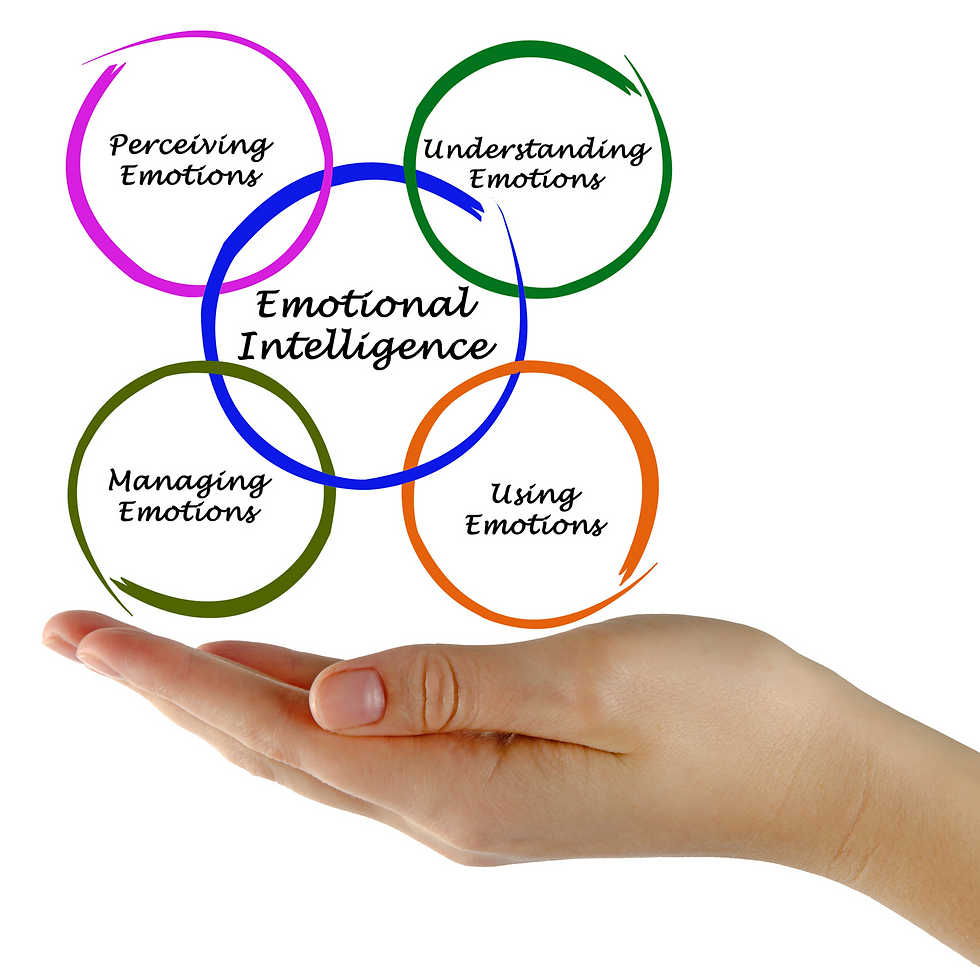Applying Emotional Intelligence in Everyday Interactions
- Structure Innovations
- Feb 7, 2024
- 3 min read
In today's fast-paced world, the ability to navigate social interactions with grace and understanding is more valuable than ever. Emotional Intelligence (EI), the ability to recognize, understand, and manage our own emotions as well as the emotions of others, plays a crucial role in this. Integrating EI into our daily lives can lead to more meaningful relationships, improved communication, and a deeper understanding of ourselves and those around us.

Understanding Emotional Intelligence
Before we dive into its application, let's briefly discuss what EI entails. Emotional Intelligence is often broken down into four main components:
1. Self-awareness – Recognizing and understanding your own emotions.
2. Self-management – Managing, controlling, and adapting your emotions, mood, reactions, and responses.
3. Social awareness – Sensing, understanding, and reacting to the emotions of others and navigating social situations effectively.
4. Relationship management – Developing and maintaining good relationships, communicating clearly, inspiring and influencing others, working well in a team, and managing conflict.

In Personal Life
1. Self-Reflection
Practice self-reflection to enhance your self-awareness. Spend a few minutes each day considering how you felt throughout the day, what triggered these emotions, and how you handled them. This practice can help you understand your emotional responses and identify patterns or triggers in your behavior.
2. Mindful Listening
When engaging with friends and family, focus on listening actively. This means fully concentrating on what is being said rather than just passively hearing the message. Mindful listening can help you better understand the perspectives and emotions of others, improving your social awareness and empathy.
3. Effective Communication
Use "I" statements to express your feelings without blaming others. For example, instead of saying "You make me angry," say "I feel upset when this happens." This approach fosters open communication and reduces the likelihood of conflict.

In Professional Life
1. Emotion Regulation
In stressful work situations, practice emotion regulation techniques such as deep breathing, taking a short walk, or practicing mindfulness. These strategies can help you maintain your composure and respond to challenges in a more balanced and effective manner.
2. Empathy in Leadership
If you're in a leadership role, showing empathy towards your team members can significantly impact their performance and satisfaction. Try to understand their perspectives and feelings, and provide support when necessary. This can build trust and improve team dynamics.
3. Conflict Resolution
Use your EI skills to navigate and resolve conflicts in the workplace. Approach conflicts with a calm demeanor, listen to all parties involved, and seek a solution that addresses the concerns of everyone. This approach can prevent conflicts from escalating and improve relationships among colleagues.

In Social Situations
1. Reading the Room
Develop your ability to "read" social situations by paying attention to body language, tone of voice, and facial expressions. This can help you understand the unspoken emotions of others and adjust your behavior accordingly.
2. Positive Influence
Use your emotional intelligence to influence social situations positively. By managing your emotions and responding appropriately to those of others, you can help create a positive and comfortable atmosphere for everyone involved.
3. Building Connections
Lastly, EI can be a powerful tool in building and deepening connections with others. By showing genuine interest and empathy, you can foster stronger, more meaningful relationships in both your personal and professional life.

Emotional Intelligence is a powerful skill that, when applied effectively, can enhance every aspect of your life. By practicing the principles of EI in your everyday interactions, you can improve your relationships, increase your understanding of yourself and others, and navigate the complexities of human emotions with greater ease and confidence. Remember, like any skill, EI requires practice and dedication to develop fully. Start small, be patient with yourself, and celebrate your progress along the way.
Stay Updated!
Don't forget to subscribe to our newsletter for the latest updates, and check out our podcast for more insights and discussions on emotional intelligence and personal development. Join our community to stay informed and connected!




Comments